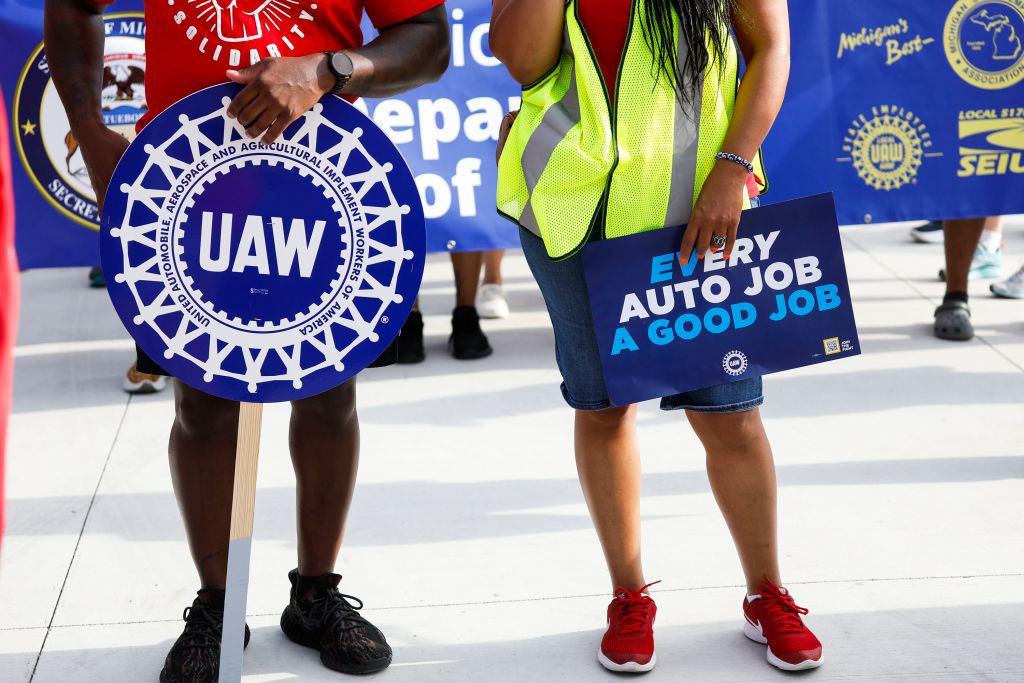
Holt McKeithan is a student at Harvard Law School.
In today’s News and Commentary, Republican-controlled legislatures move against unions and child workers, Mercedes workers in Alabama schedule a union election, and the VW Chattanooga election wraps up today.
The Alabama senate advanced a bill that would punish companies for voluntarily recognizing unions on the basis of a card-check. The bill, which would withhold state subsidies for voluntary recognition, was approved 23-5 in the Senate. It now moves to the state’s House of Representatives. The move follows the enactment of similar laws in Tennessee and Georgia. The conservative group ALEC circulated draft legislation that served as the model for these bills. John has analyzed whether these measures are preempted under federal labor law, and Ben has written about how blue states may pass laws supporting unions if not.
Meanwhile in Louisiana, a state House committee has voted to advance a bill that would repeal protections for child workers. Rep. Roger Wilder is sponsoring the bill, which would eliminate required lunch breaks for child workers and roll back unemployment benefits. During committee hearings, Wilder repeatedly used the term “young adults” to refer to minors. “I believe that our young adults can make a decision without a babysitter,” the Republican stated in support of the bill. The bill is the latest in a country-wide effort by Republicans to eliminate child labor labor protections. Luke wrote about one such bill in Wisconsin that passed the state legislature but was vetoed by the governor.
These anti-union measures in the south come in the face of an historic UAW organizing effort in the region.
In Alabama, workers at a Mercedes Benz plant will vote whether to form a union from May 13-17. The workers are organizing with the UAW, which filed for an election after achieving supermajority card support on April 5. Everest, John, and Elyse have previously covered the plant’s union-busting tactics. The UAW’s announcement included the following quote from Jeremy Kimbrell, a Mercedes worker at the Alabama plant: “Workers at our plant are ready for this moment. We are ready to vote yes because we are ready to win our fair share. We are going to end the Alabama discount and replace it with what our state actually needs. Workers sticking together and sticking by our community.”
The Alabama Mercedes election news comes as Volkswagen workers in Chattanooga enter their last day of a union election. Divya wrote about the vote yesterday. Polls are slated to close at 8 P.M. this evening, and election results are expected this evening.






Daily News & Commentary
Start your day with our roundup of the latest labor developments. See all
March 3
In today’s news and commentary, Texas dismantles their contracting program for minorities, NextEra settles an ERISA lawsuit, and Chipotle beats an age discrimination suit. Texas Acting Comptroller Kelly Hancock is being sued in state court for allegedly unlawfully dismantling the Historically Underutilized Business (HUB) program, a 1990s initiative signed by former Governor George W. Bush […]
March 2
Block lays off over 4,000 workers; H-1B fee data is revealed.
March 1
The NLRB officially rescinds the Biden-era standard for determining joint-employer status; the DOL proposes a rule that would rescind the Biden-era standard for determining independent contractor status; and Walmart pays $100 million for deceiving delivery drivers regarding wages and tips.
February 27
The Ninth Circuit allows Trump to dismantle certain government unions based on national security concerns; and the DOL set to focus enforcement on firms with “outsized market power.”
February 26
Workplace AI regulations proposed in Michigan; en banc D.C. Circuit hears oral argument in CFPB case; white police officers sue Philadelphia over DEI policy.
February 25
OSHA workplace inspections significantly drop in 2025; the Court denies a petition for certiorari to review a Minnesota law banning mandatory anti-union meetings at work; and the Court declines two petitions to determine whether Air Force service members should receive backpay as a result of religious challenges to the now-revoked COVID-19 vaccine mandate.